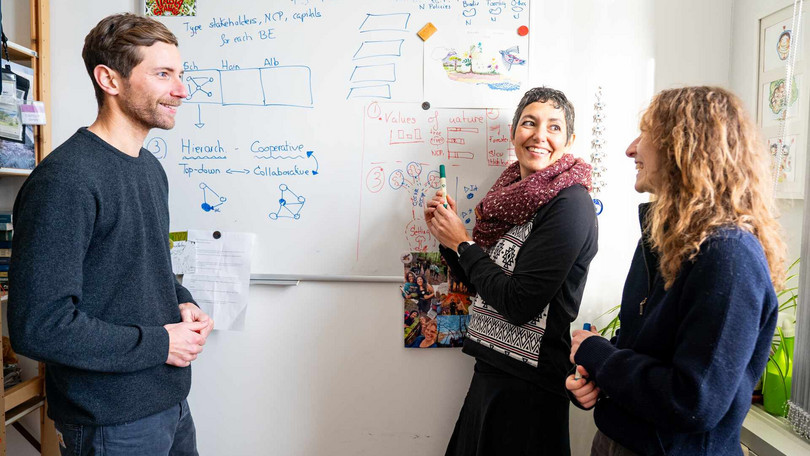DFG research project: Promoting sustainable land management
2024-01-24 Prof Dr Berta Martín-López investigates the value systems behind the decisions of landowners and land managers in the Biodiversity Exploratories.
Nature supports human well-being in many ways: it feeds us, plants contain medicinal substances, or we relax in nature. However, nature's contributions to people (NCP) can be influenced by landscape management - both positively and negatively. For example, intensive land use is based on choosing external inputs, such as pesticides and fertilisers, which may increase food production but lead to a decline in habitat. "To promote sustainable land management, we need to understand the social drivers behind the decisions of landowners and land managers that influence the provision of nature's contributions to people (NCP)," explains Prof Dr Berta Martín-López.
Together with researchers from Leuphana, the Pyrenean Institute of Ecology (IPE-CSIC) in Spain, and the University of Vienna, the Professor of International Sustainable Development and Planning is investigating the unknown interactions between two of the most important social drivers of land management: the ways people value nature and its NCP and the telecoupling of NCP. While values of nature indicate how people relate to nature and give importance to nature, the telecoupling concept highlights the interlinkages of both socio-economic and ecological effects over long distances. The three-year project "Unravelling the relation between Values of Nature and Telecoupling (VaNaTe)" with 399 000 Euros.
VaNaTe is a follow-up project embedded in the large-scale and long-term DFG-funded research platform Biodiversity Exploratories. In the previous phase, the research project "Effects of land management on the Supply and Distribution of ecosystem services (ESuDis)" linked the degree of land use intensity within the Biodiversity Exploratories’ three case study sites with the production of NCP. The case studies encompass forests and grasslands located in Brandenburg, Thuringia, and Baden-Württemberg. So far researchers in the Biodiversity Exploratories have predominantly investigated the ecological effects of land use, for example, how it affects insect diversity or different plant species.
The research conducted in VaNaTe contributes to broadening the Biodiversity Exploratories’ scope by understanding the underlying social drivers leading to specific forms of land use and management. "Among other things, we are interested in the relationship between landowners' land management decisions and their value systems in relation to nature and NCP" explains PostDoc researcher Roman Isaac. The project’s research results are intended to add to the data generated in the Biodiversity Exploratories by providing better knowledge on why landowners and managers decide upon certain management strategies.



